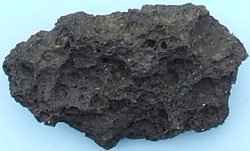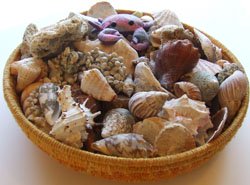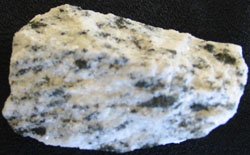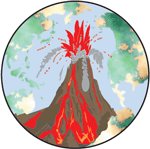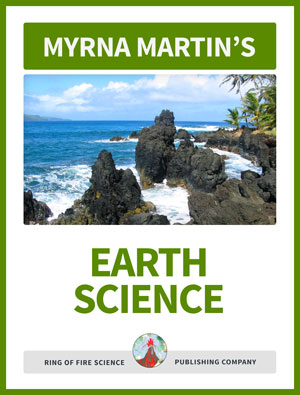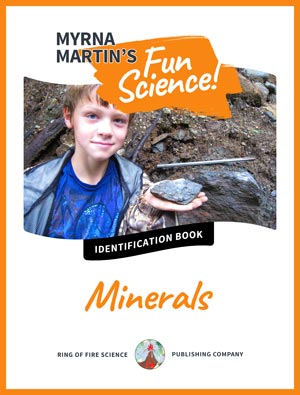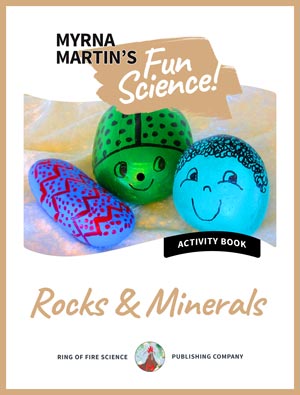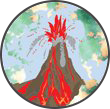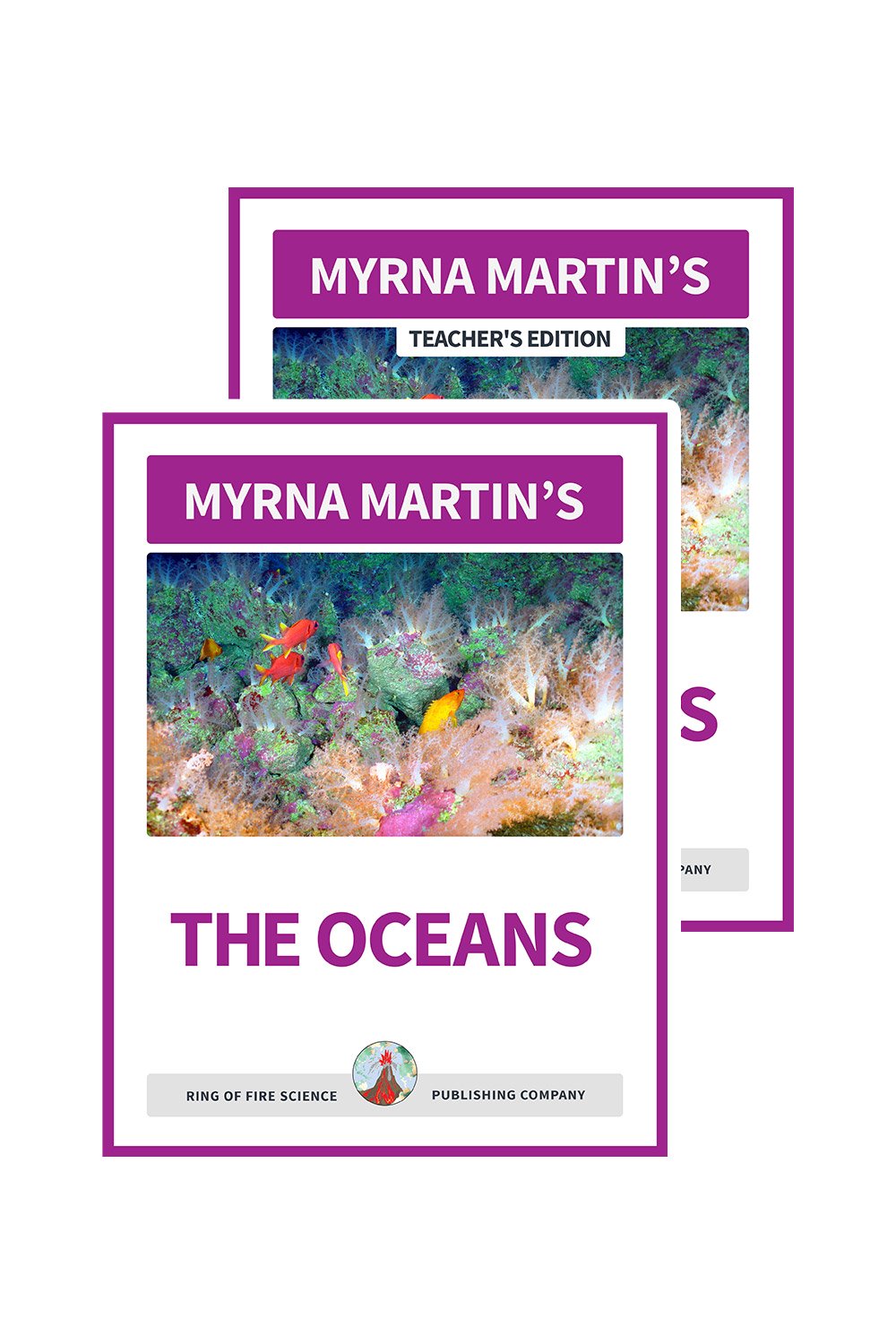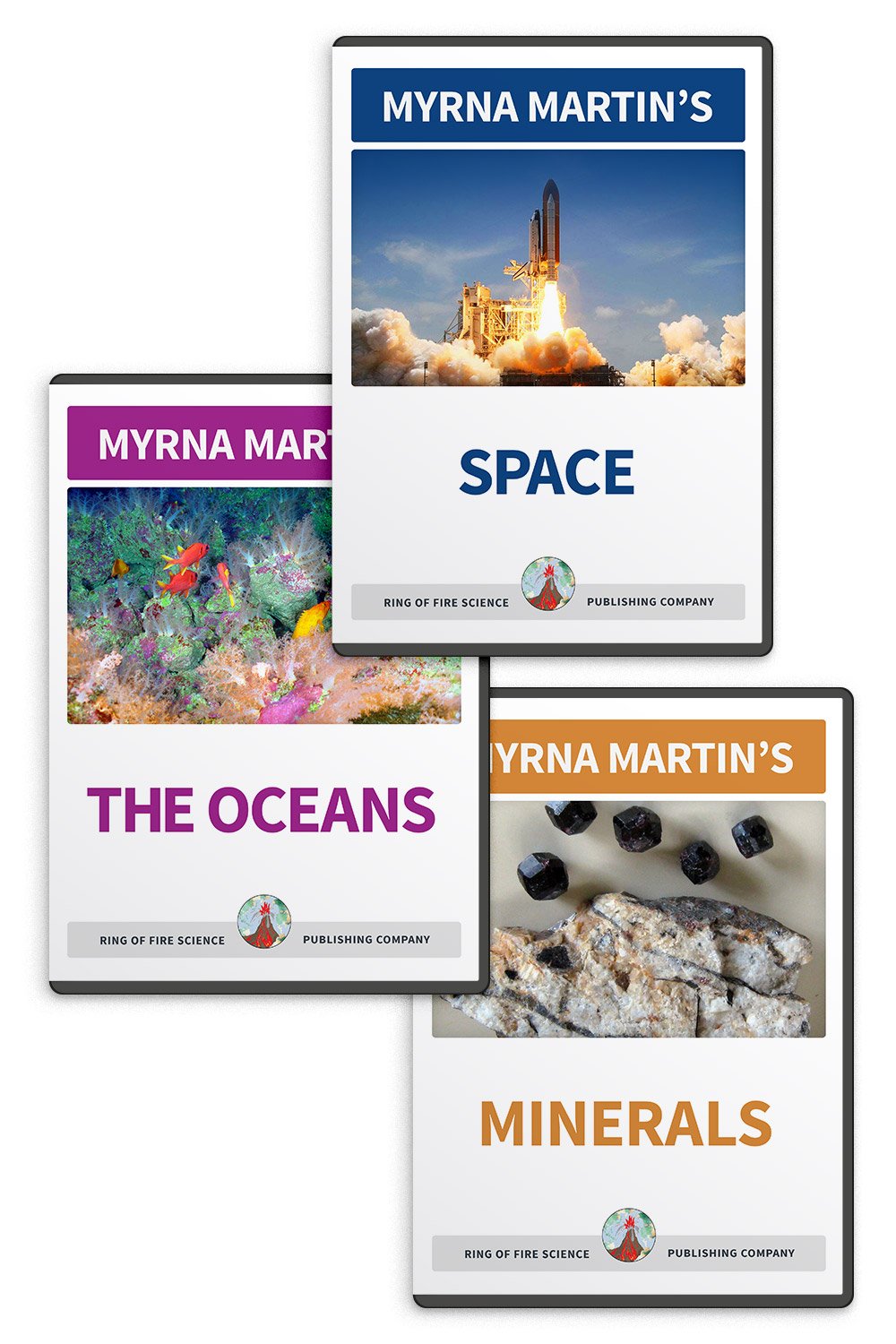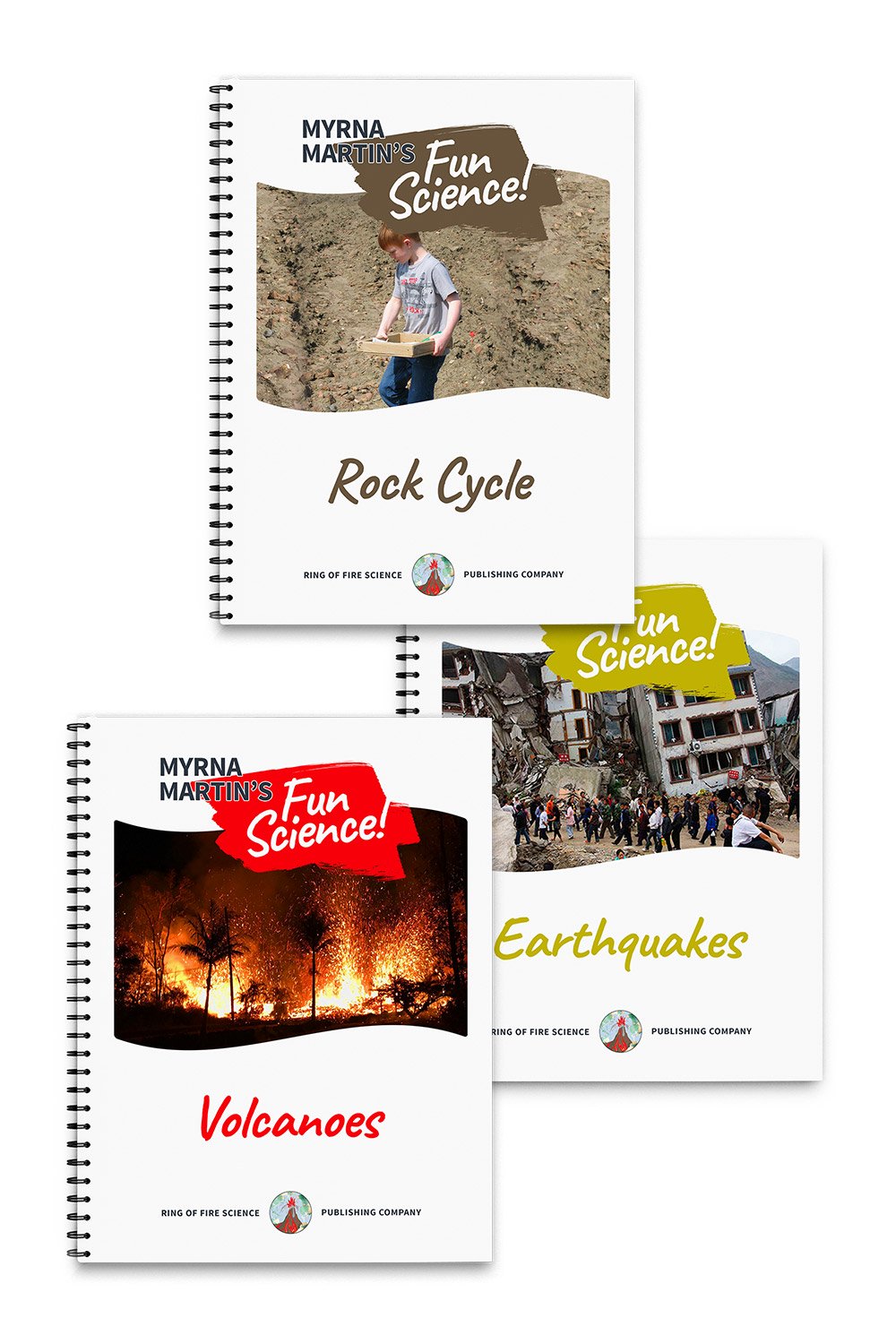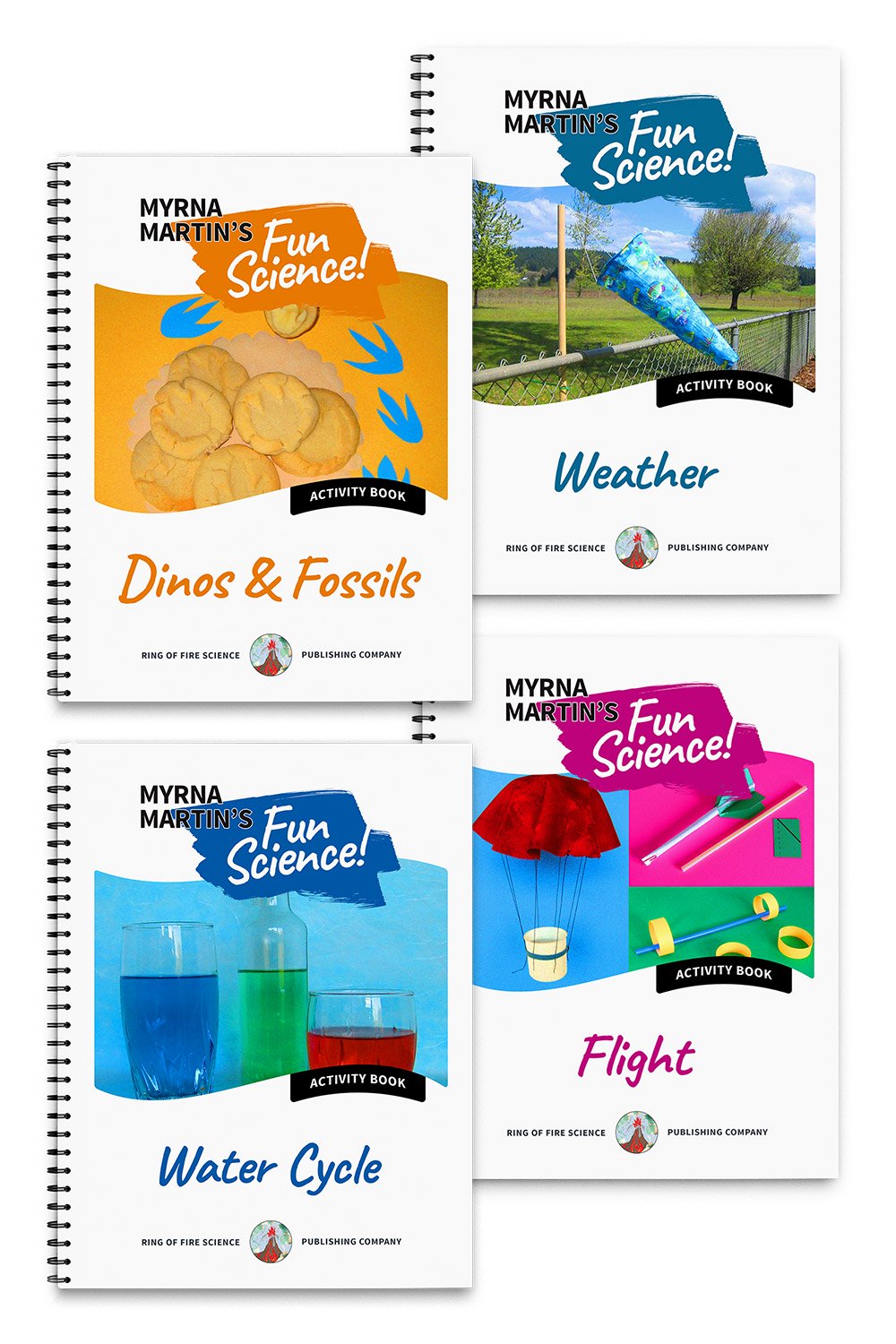What is the Rock Cycle?
Three families of rocks
The rock cycle consists of igneous rocks, sedimentary rocks and metamorphic rocks. These groups of rocks are constantly changing from one group into another. The rocks in each of these families are changing due to tectonic plate movement as crustal plates collide, move apart or slip past each other.
Basalt rock that formed in the upper mantle, Myrna Martin
Igneous Rocks
Igneous rocks
Igneous Rocks are a major group of rocks. All igneous rocks develop when molten rock cools and hardens. Find out about these igneous rocks in the links below that form when a volcano erupts: pyroclastic rocks, aa lava, welded tuff, ignimbrite, pyroclastic material, pahoehoe lava and basalt rocks.
Tephra
All rocks that are blown out of a volcano are tephra rocks. Gases in the molten rock expand as the molten rock nears the Earth's surface. The expanding gases burst out of the vent of the volcano creating ash, lapilli, and lava bombs.
Lava flows
Lava flows are molten rock that flows out of the vent of a volcano. It can flow down the slopes of the volcano or form a river of molten rock. All igneous rocks that flow out of a vent are called lava or lava rocks. Pahoehoe is a fluid lava that looks ropy on shield volcanoes. Cooler and less fluid basalt lava is called aa lava. The surface of these flows are rough and hard to walk on.

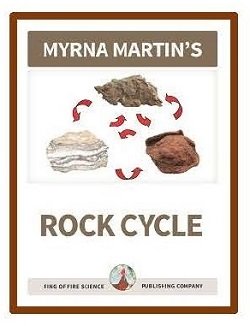
Click for More Information and to Order
Seashells collected on Pacific Ocean beaches
Sedimentary rocks
Three major groups of sedimentary rocks
Sedimentary rocks form when older rocks weather. The pieces of older rock are carried downstream to form clastic rocks. Shale is a common clastic rock. Sedimentary rocks found in the rock cycle are varied and include three major groups: clastic rocks, organic rocks and chemical rocks. You will find more information on clastic rocks, organic rocks, limestone caverns, salt domes and coal formation in the links below.
Clastic rocks
Clastic rocks are bits and pieces of rocks that are "glued together" with minerals that crystallize between the individual clasts in clastic rocks. Major groups of these rocks are shale, mudstone, siltstone and conglomerates.
Organic rocks
Organic rocks form when plant and animal remains turn to rock. Coal, that formed in ancient swamps, is the only rock that will burn. Coral reefs were created by tiny coral polyps that used calcite in seawater to create tiny homes where they lived their entire life. Plankton have shells that they use for protection. Chalk is an accumulation of e shells that form layers on the seafloor that turn into stone.
Chemical rocks
Inland seas and shallow oceans form chemical rocks. When water becomes supersaturated minerals crystallize and collect on the seafloor as sedimentary rocks. Salt, borax and limestone are examples of chemical rocks.
Gneiss rock that is a high-grade metamorphic rocks
Metamorphic rocks
Metamorphic rocks
Metamorphic rocks are the third group of rocks. Metamorphic rocks form when igneous, sedimentary and metamorphic rocks recrystallize without melting within the Earth. These rocks form intrusive rocks or plutonic rocks.
Examples of metamorphic rock
Limestone rocks that crystallize into metamorphic rocks form marble. Shale, a clastic rock, can recrystallize slate. Slate recrystallizes phyllite, schist and gneiss a high-grade. Each of these metamorphic rocks recrystallize under high temperatures and pressures.
More information on the Rock Cycle
Volcanic Eruptions Create Pyroclastic Rocks
Organic Rocks Were Plants And Animals
Limestone Caverns Are Holes In Rocks
Lava Caves Are Empty Lava Tubes
Welded Tuff In Pyroclastic Flows
The Rock Cycle Three Main Families
Volcanic Eruptions Create Pyroclastic Rocks
Aa Lava Flows Are Rough To Walk On
90% Of All Volcanic Rocks Are Basalt Rocks
Coal Formation Began In Ancient Swamps
Ignimbrite Forms During Violent Eruptions
KIDS FUN Science Bookstore
Check out Myrna Martin's award winning textbooks, e-books, videos and rock sets. The Kids Fun Science Bookstore covers a wide range of earth science topics. Click here to browse.


